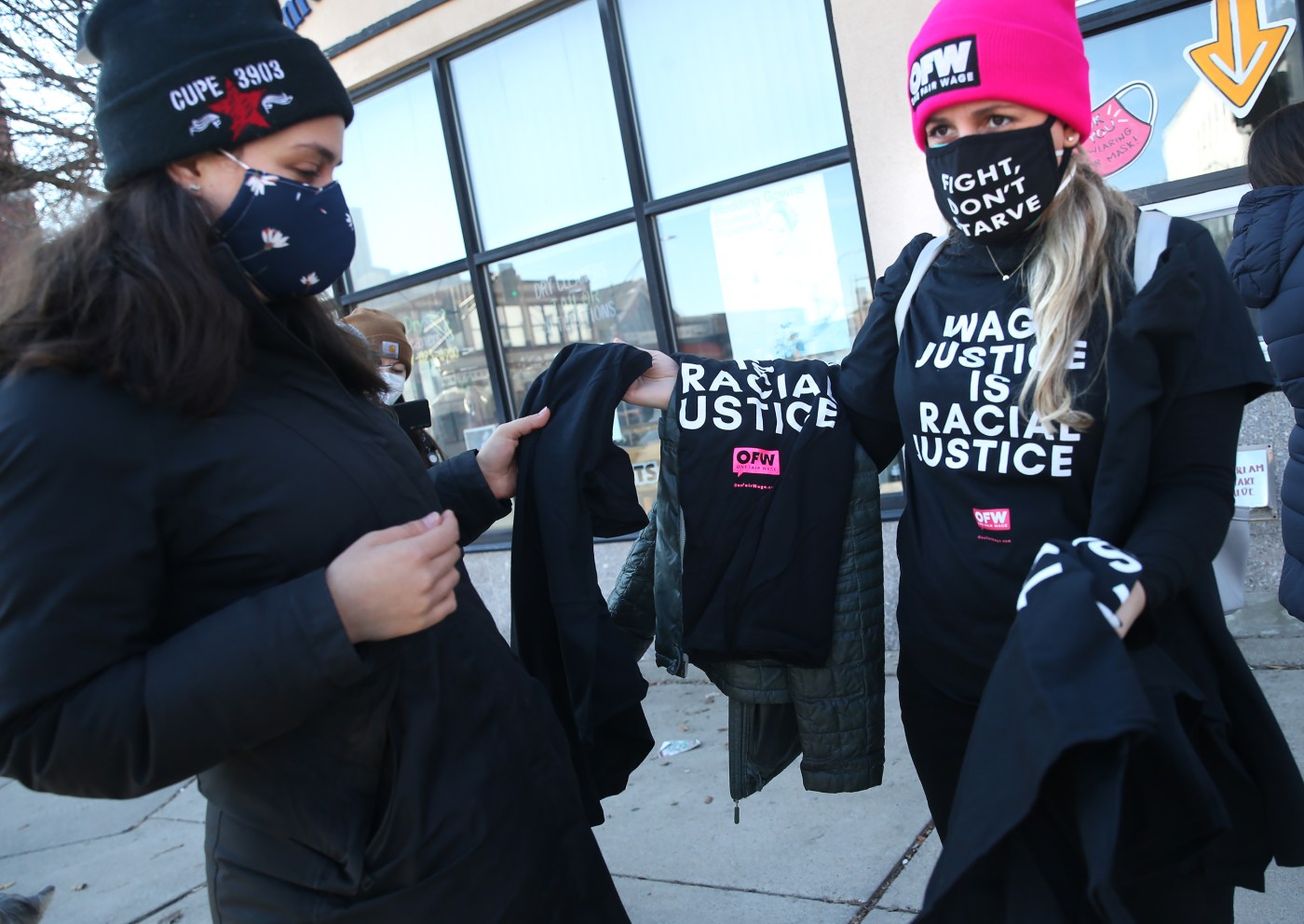
Restaurant group alleges tipped minimum wage supporters ‘fraudulently obtained’ voter signatures
A restaurant industry group alleged Wednesday that “numerous” voter signatures supporting a potential ballot question that would gradually increase the minimum wage for tipped workers were “fraudulently obtained,” according to a challenge filed with state officials.
The question, backed and funded by the group One Fair Wage, cleared the latest threshold required to get on the ballot by only 136 signatures, according to the state’s election department. But the Massachusetts Restaurant Association disputed some of those in an effort to keep the measure from being placed before voters in November.
The association, which is part of a coalition fighting the tipped minimum wage push, said signatures also came from non-registered voters, inactive voters, and people who requested their names be removed.
Sheets used to collect signatures included “extraneous marks” in violation of state regulations and have “tabulation errors by local election officials that ‘credit’ more certified signatures then (sic) were actually certified,” the challenge said.
After looking at signatures that were collected by One Fair Wage, it is “evident” that at least some of them were “clearly signed by the same person,” a move that would amount to fraud, Massachusetts Restaurant Association Government Affairs Director Jessica Muradian said.
“There’s other issues as well as we’ve outlined and we really want to make sure that the signatures are genuine before this is placed on the ballot for November,” Muradian told the Herald. “The voters of the commonwealth deserve that due diligence.”
A spokesperson for One Fair Wage said the restaurant association “only” filed a challenge because the group has been “fighting this initiative tooth and nail,” including with a “frivolous lawsuit.”
“It is clear they do not want to have a public debate about this issue because they know that when the public is presented with a clear case, our ballot question will win, and their position will lose. This is nothing more than a blatant attempt to stop the democratic process from happening,” One Fair Wage said in a statement.
The State Ballot Law Commission, a panel that resolves election-related issues, plans to hear the objection in a format similar to one held earlier this year that unsuccessfully sought to remove former President Donald Trump from the Massachusetts ballot.
A spokesperson for Secretary of State William Galvin said a hearing on the ballot question will occur no sooner than July 17.
Officials at the Massachusetts Restaurant Association cast a wide net on potential signature or gathering sheet violations.
Once a group makes it to a hearing, they cannot bring up an issue that was not included in an initial challenge, according to Galvin’s office. The association will need to file a list of specific signatures or sheets they plan to challenge at least three days before a hearing.
“We’re preparing our case for the ballot commission, and we will bring it in front of them when they give us a date,” Muradian said.
In order to place a question on the November ballot, campaigns needed to file at least 12,429 certified voter signatures with the state’s election division by July 3. An initial 74,574 certified signatures were due to Galvin’s office last year.
One Fair Wage filed 12,565 certified signatures, only 136 more than required by state law, according to Galvin’s office.
Related Articles
Biden’s candidacy faces new peril as Pelosi, Clooney and more Democrats weigh in
Gov. Maura Healey says Biden can beat Trump but again asks him to ‘evaluate’ chances
Presidential battle could play role in control of state capitols in several swing states
More states consider voter ID laws amid conflicting research on their impact
Nikki Haley releases delegates, urges them to back Trump at convention
The voter signature certification challenge comes a month after the Supreme Judicial Court ruled against the Massachusetts Restaurant Association in a lawsuit that alleged the tipped minimum wage question touched on too many topics.
The question One Fair Wage wants to place before voters would increase the minimum wage for tipped workers over five years, with employees earning 100% of the state minimum wage by January 2029, according to a summary prepared by Attorney General Andrea Campbell’s office.
Supporters proposed requiring employers to continue paying tipped workers the difference between the state minimum wage and the total amount tipped workers receive in hourly wages plus their tips through the end of 2028.
The requirement to pay the difference would end when the hourly wage for tipped workers reaches the state’s full minimum wage in 2029, according to the summary.
Employers could also administer a “tip pool” that combines all tips given by customers and distributes them among all workers, including non-tipped employees, so long as they pay their workers at least the state minimum wage.
Muradian said the language around tip pooling is vague.
“We are fighting this and we urge voters to vote no because servers and bartenders, the people that this ballot question affects, do not want this. They want to keep things the way they are,” Muradian said.


